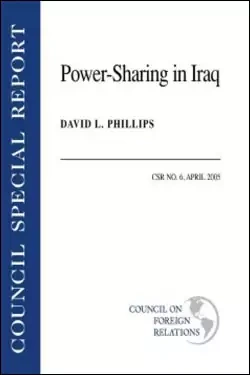
Power-Sharing in Iraq

- Council Special Report
- Concise policy briefs that provide timely responses to developing crises or contributions to current policy dilemmas.
More on:
Overview
Iraq's election on January 30 was an important step in the country's political transition.
Still it is essential to keep a sense of perspective. In a democracy, power is distributed among an executive, a legislature, and an independent judiciary at the federal level; between the center and the local or provincial level; and between the state and the individual citizen, who must enjoy basic rights. All this comes from laws and institutions, not elections. Drafting and gaining the necessary support for a new Iraqi constitution from Iraq's minorities and not just its Shi'a majority will prove far more difficult and, if achieved, far more significant than anything accomplished to date.
This report by David Phillips examines the core concerns of Iraq's constituencies. It also provides recommendations on power-sharing arrangements, governance structures, individual and group rights, and a role for the United States and the United Nations in the constitution-making process. Iraqis face difficult decisions. I hope this report contributes to a process of achieving compromise and consent.
More on:
 Online Store
Online Store